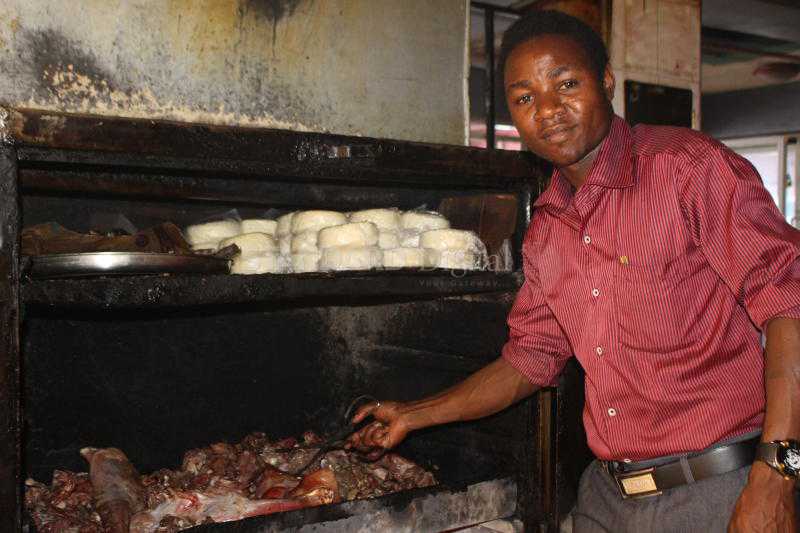×
The Standard e-Paper
Stay Informed, Even Offline

The mud seems to be the least of their worries as they dash into open-air food kiosks lined up on the edge of Nairobi River.
This is the back end of Nairobi’s Grogon area, where hungry workers seated on wooden benches with sagging sacks for rooftops gather for lunch for as little as Sh20.